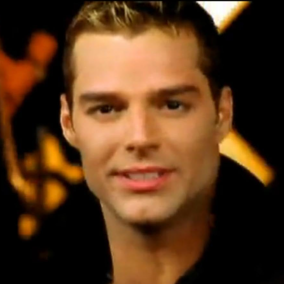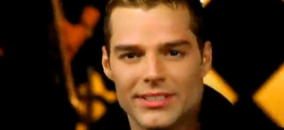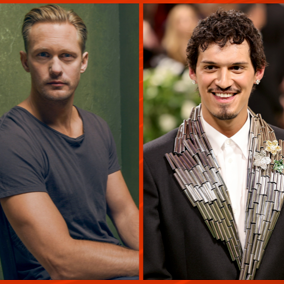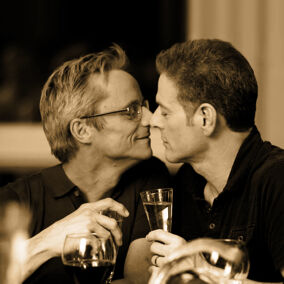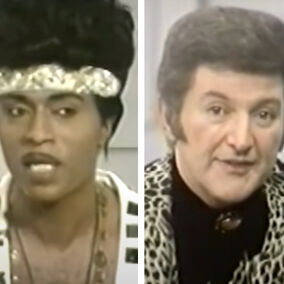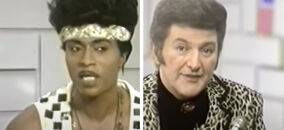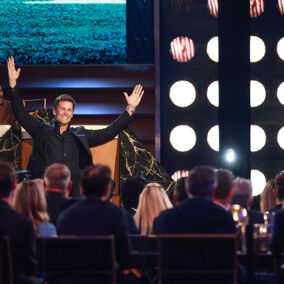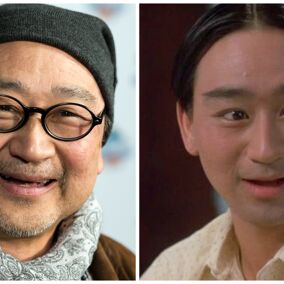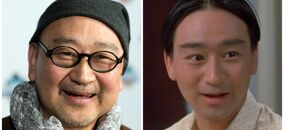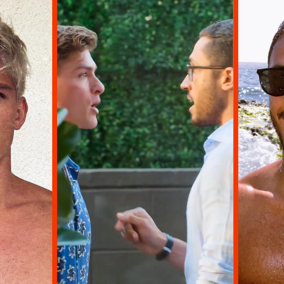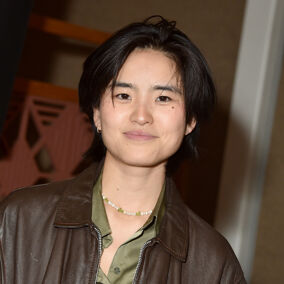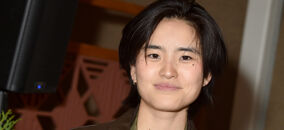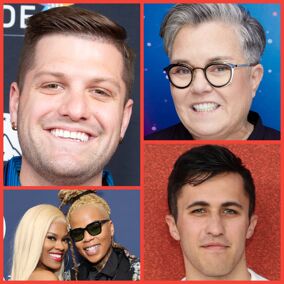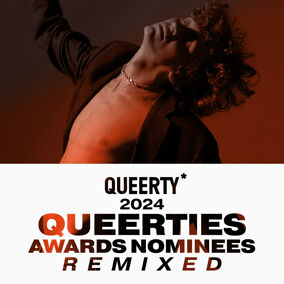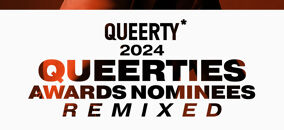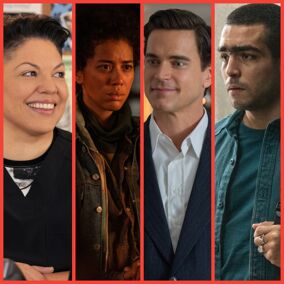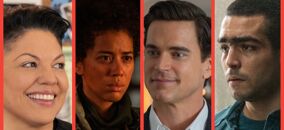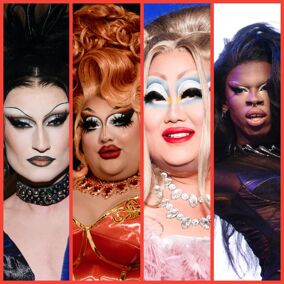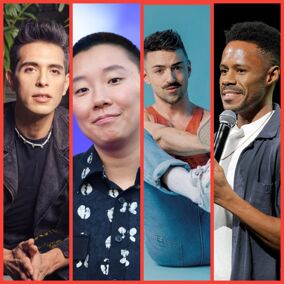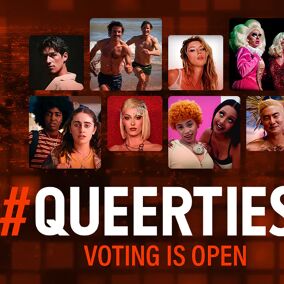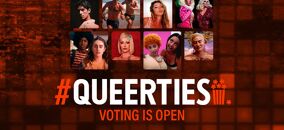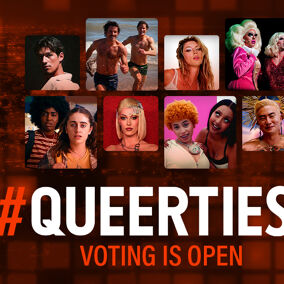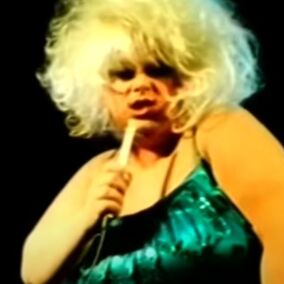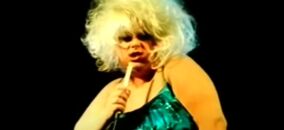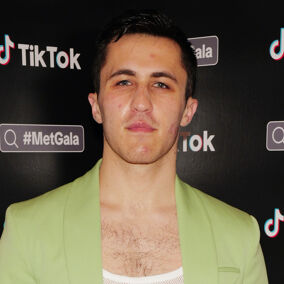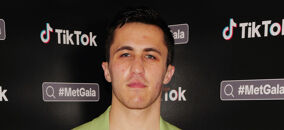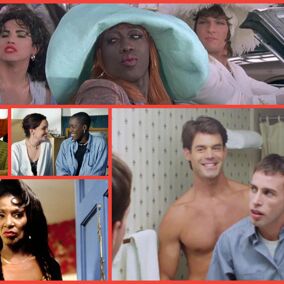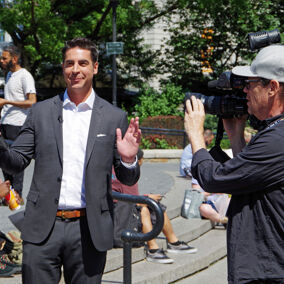
Of all the frightening power dynamics facing queers (and, in fact, everyone), hate crimes may be the most horrifying. As you may recall, the Human Rights Campaign released a report citing homophobic hate crimes as the third most prevalent of all the offensive offenses.
While some may want to bury their head in the proverbial sand, writer/director Tommy Stovall decided to make a movie, Hate Crime. Imagining what would happen if a virulently anti-gay man moved in next door to a gay couple, the movie takes the viewer through the myriad emotions and pathos surrounding hate crimes.
Stovall’s first film and starring such notables as Lin Shaye, Bruce Davison and Seth Pierson, Hate Crime garnered rave reviews and even earned Stovall “Best Director” at the Breckenridge Film Festival.
To celebrate today’s release of the DVD, Stovall sat down with Queerty to chat about the power of filmmaking, how the movie challenges popular conceptions of queer reactions and the merits of stereotypes.
Queerty: Let’s talk about growing up for a second. Did you have a happy childhood? How old were you when you came out of the closet?
How about we take this to the next level?
Our newsletter is like a refreshing cocktail (or mocktail) of LGBTQ+ entertainment and pop culture, served up with a side of eye-candy.
Tommy Stovall: I did have a happy childhood for the most part. I grew up in a small town in Texas, where it’s pretty safe and slow-paced, where everyone knows each other. I liked most aspects of that environment, but it sucked growing up there as a gay person. Fortunately, religion was never a big issue, but I did get the clear message that being gay was disgustingly wrong, so I definitely had issues to deal with.
I started coming out at 23, which I did as quickly as possible so I could get it over with and get on with things. Luckily, most of my friends and family had immediate changes in their gay views and have always been supportive.
QT: Did you always want to be a filmmaker?
TS: My family got a video camera when I as a teenager and it became an obsession for me. I made videos of all kinds, including feature length movies with my friends, just for fun. Midway through college, I started making money videotaping weddings and such, and it occurred to me I could actually major in video and filmmaking, which I ended up doing. It took me a lot of years to get around to making Hate Crime though, my first feature.
QT: Why did you write Hate Crime?
TS: First and foremost, I wanted to do a thriller-style movie that would be entertaining with an interesting story. And if I could do it about a subject that I found socially relevant and important, even better.
I wanted to explore religion’s role in homophobia and violence toward gay people, so I basically started with the question “What would happen if a fundamentalist preacher’s kid moved in next door to a gay couple?”

QT: Did you expect for it to be so well received?
TS: Well, I certainly hoped it would be well received. I love that the movie makes people think and want to debate about all the issues we deal with in it.
QT: I have to admit, I get really tired of so-called gay suffering movies – that is, movies that turn gay struggles into mawkish hyperbole – and I was pleasantly surprised by the moral ambiguity at the end. Had you chosen to have Robbie wallow for the rest of eternity, I would totally have hated it, but he doesn’t. I won’t ruin the end, but let’s just say it throws the viewer for a loop. Obviously you did that intentionally.
TS: First of all, thank you! To me, the ending is what this movie is all about and is crucial to the story I wanted to tell. It’s important exactly for the reasons you point out. Except for the basic premise of the story, the ending was the first thing I decided on. The writing process was all about steering the story toward that ending. We’ve had some harsh criticism about the ending, even from some gay people, which shocked me at first, but I do understand why it’s hard for some people to handle. I’ve learned that there are those [people] out there that would indeed rather have Robbie wallow for the rest of eternity. I’m definitely not one of them.
The most gratifying thing for me personally about this movie is that it has actually helped many victims of hate crimes cope with what they’ve gone through, which was completely unexpected. And I can tell you that [none] of these people I’ve heard from or talked to personally have had a problem with the ending.
QT: I was discussing – of all things – the social responsibility of shows like Flavor of Love and – I hate to even bring it up – Queer Eye. Basically, the conversation revolved around whether or not playing on stereotypes has social merit. Do you think that representations of so-called minorities must always be as quaint as Will from Will and Grace? Is there room for a bit stereotypical reinforcement when it suits a character?
TS: I think stereotypical characters are okay when they’re done the right way, in the right situation. The fact is that stereotypes exist, but the danger comes when that’s all you ever see. I wanted to make the gay couple in Hate Crime these two guys you haven’t seen before in other movies. They are anti-stereotypes and their being gay isn’t an issue until this new neighbor moves in.
QT: What’s your next project? Do you want to consistently make movies that address social issues?
TS: I’m working on a script called “Sedona”, which will be totally different from Hate Crime. I want to make all kinds of movies, with or without social issues. I do have a definite objective, though, and that is to portray gay characters as real, ordinary people, which isn’t done nearly enough.
Don't forget to share:



